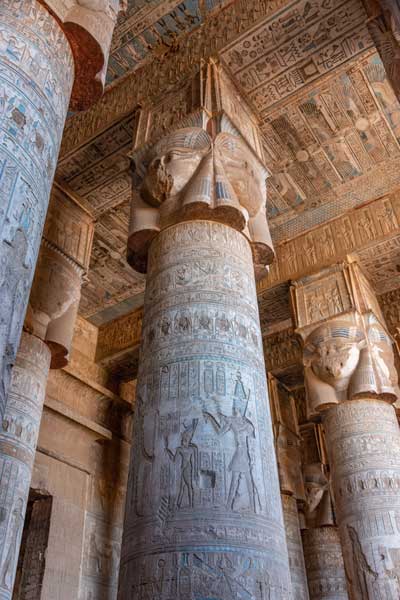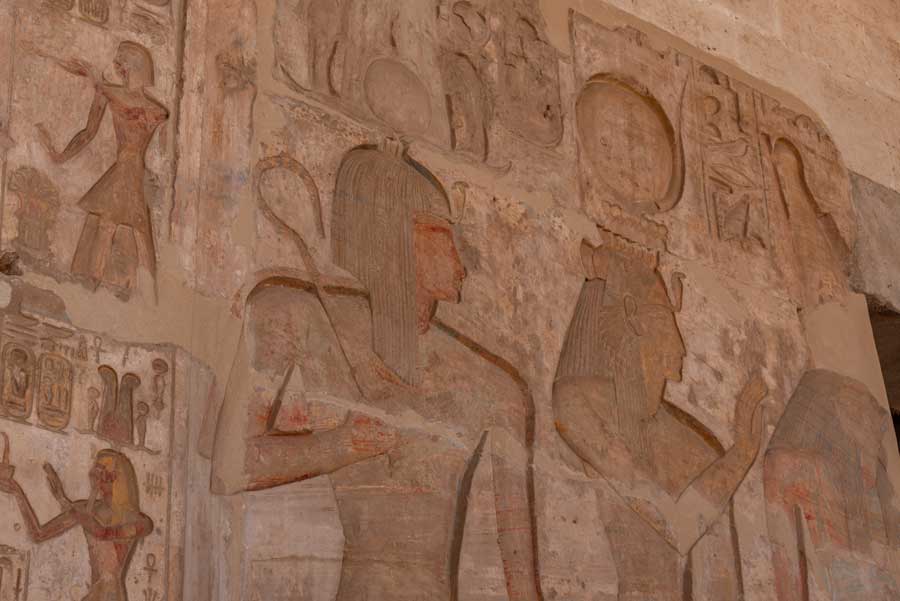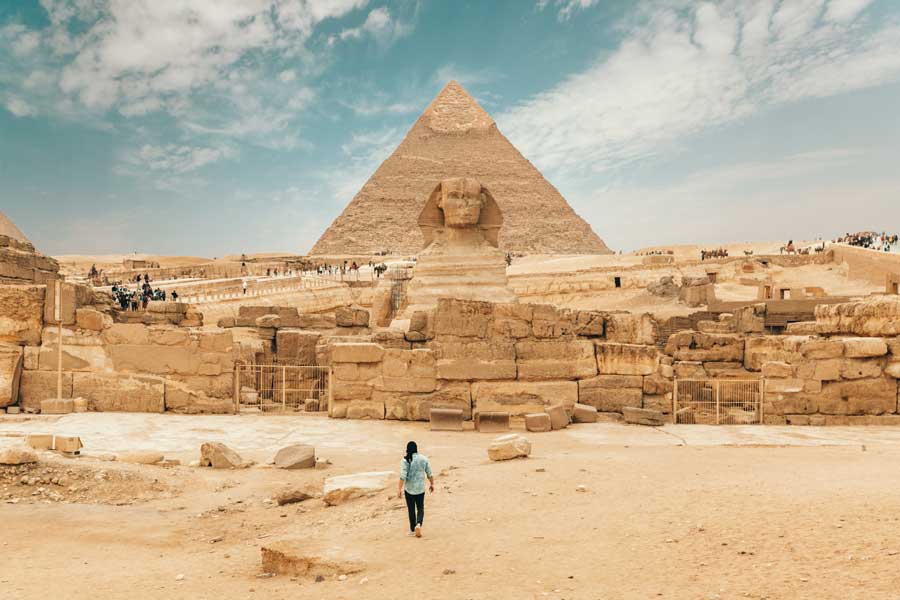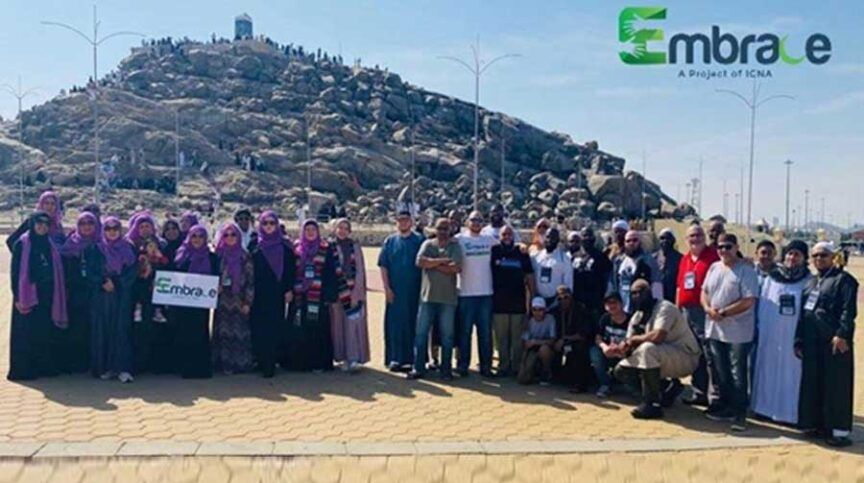I visited Egypt recently, a country rich in history and desperate to preserve the monuments that attest to this reality. I saw tombs from over 3,000 years ago, dug deep into the earth, laid out with perfectly measured blocks of sandstone and rock. These were then inscribed with colorful hieroglyphs, carved beautifully, painstakingly, by hand, into the hard stone. When I asked about the remains of the great prophets, of Yusuf and Musa, those who we know existed in Egypt, the guide, who was Muslim himself I might note, struggled to find an answer before eventually saying that there might perhaps be something in areas further north in Egypt. But when I asked of the pharaohs of old, of tyrants and dictators, of those who committed mass genocides and ethnic cleansings — oh the tales were endless.
Fantastical legends were woven from the faint remains of once-decorated rock. Stories of kings and queens hiding away incomparable treasures far deep underground, desperate to ensure an afterlife for themselves, completely oblivious or perhaps even uncaring about the economic stability of their people. Stories abound of massive festivals, where the poorest of the poor would be convinced to give fine sacrifices for the deities, which would instead go directly into the hands of the ruler. And stories of traveling through mythical worlds in dreams, of being appointed by gods and goddesses with the divine right to rule.
The Egyptians have done exceptionally well for themselves in sustaining a continuous income of tourism. The international airport gleams, and the hotels surrounding it are elegantly maintained. The roads leading to the most popular historical sites are freshly constructed, and the merchants in these spots have perfected the art of commerce, selling trinkets to the hundreds or thousands of tourists passing through daily. Everything is designed to guide visitors on the perfect journey where they can enter and leave the country without ever having to look past this carefully constructed image.

My trip, however, didn’t follow the traditional tourist route of airports and hotels to temples, pyramids, and tombs, before heading straight back to those same hotels and airports. I did visit all of those, yes, but I also went into the heart of the land. I prayed in mosques under construction, passed run-down graveyards, and visited local stores. I saw crumbling homes, peeling graffiti, and streets more pothole than asphalt. This is not to criticize Egypt for its lack of wealth. I have lived in Pakistan, so believe me when I say I know fully well that there is a beauty and a strength here that will not be found in any developed nation. But beauty and strength are not what my story is about.
Rather what this is about, the primary thing I took home from Egypt, is the realization of the utterly selfish nature of humanity. These pharaohs, kings, queens, self-appointed royalty of all sorts, had all the world’s power, knowledge, and wealth at their disposal. The ancient Egyptians are revered as one of the most technologically advanced civilizations of their day. And yet, the one thing they chose to spend decades constructing, often the majority of their lives, was not schools or hospitals or libraries. No, the chosen legacy of the ancient Egyptians is their tombs.
The Great Pyramids of Giza, one of the Seven Ancient Wonders of the World, served one and only one purpose – to house exactly one dead body in each of three pyramids — father, son, and grandson. Historians estimate that over 100,000 slaves were used to create these shrines, many of whom were literally worked to death, dying on average by the age of 35. This legacy of the ancient Egyptians, their magnum opus, is built on nothing but blood.
The worst part, however, is not just the brutal conditions these slaves had to endure, but rather the completely useless projects for which they lost their lives. These people died, not to start some revolution or as martyrs to a greater cause or even for any reason of their own choosing. Rather, tens of thousands of people were worked to death solely because some rich ruler essentially wanted a glorified tombstone. These pharaohs then chose to bury their wealth in these tombs, so not only did they steal the lives of the people, they stole the possibility for financial stability and economic prosperity as well. While thousands labored and starved, these kings and queens cared for nothing but scurrying away with anything even remotely valuable.

We have been told in the Qur’an, “Say [O Prophet], travel through the earth and see what the end was of those before; most of them worshipped others besides Allah” (Qur’an 30:42). And never had this verse really struck me, until I visited Egypt. There is a palpable desperation in the tombs of the ancient Egyptians that both horrifies and saddens me. These arrogant pharaohs have been knocked down into complete humiliation, by the Rabb Himself. The bodies that they were so frantic to mummify have shriveled and decomposed so thoroughly that they are barely recognizable. The gold that they selfishly hid away from everyone now rests in museums for the entire world to see. And the gods that they worshipped and in whose names they committed the worst atrocities, are now known to all to be nothing but childish myths.
Allah speaks of the particularly tyrannical pharaoh from the time of Musa, promising him, “Today We will preserve your body so you can be a Sign for the people who come after you…” (Qur’an 10:92). The promise of Allah holds true. While the exact body of this pharaoh may currently be undetermined, the remains of the Ancient Egyptian dynasties are enough of a sign for anyone who seeks to reflect.
May Allah protect us all from such a humiliating end. Ameen.




